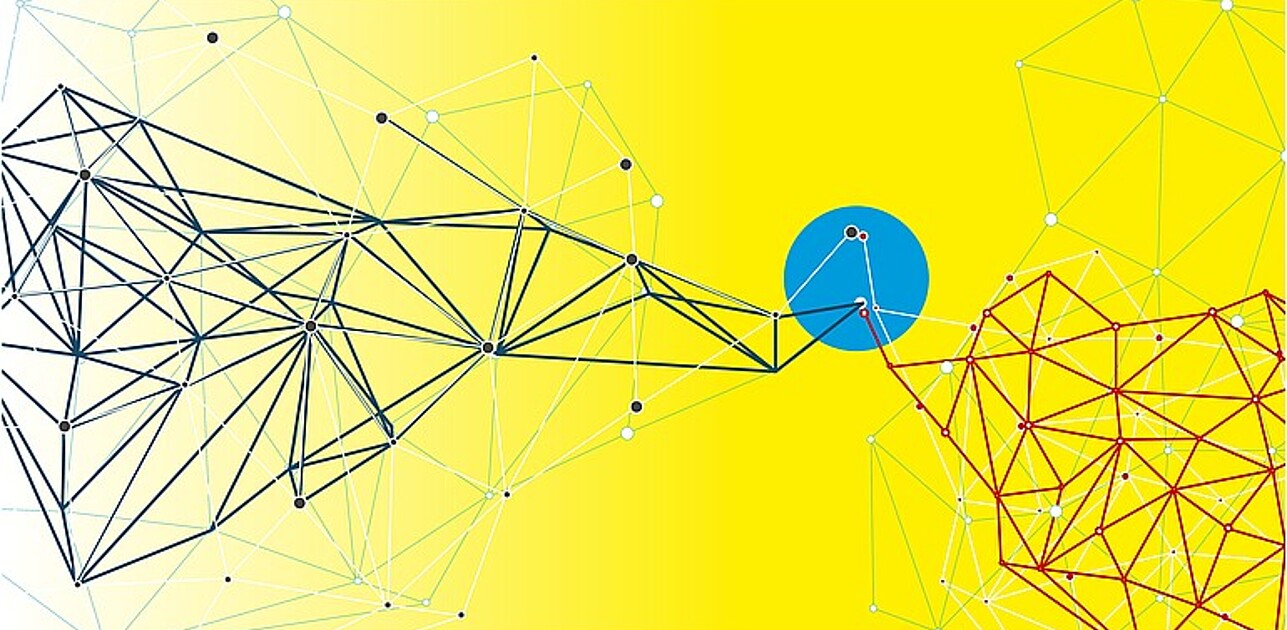

Article: Friday, 11 December 2015
What does a marketing video that goes viral have in common with the sneezing of an ill person on a packed bus? In both instances there is a chance that information – a marketing message or a virus – can be spread. In his upcoming PhD defence Wouter Vermeer from Rotterdam School of Management, Erasmus University (RSM) describes a new way of analysing how information finds its way through networks. His results not only explain how knowledge spreads through business organisations, but also show how businesses can better manage it. Vermeer will defend his thesis on 17 December.
To understand this process of propagation, Vermeer argues we should look at how individuals in a system handle information. He identifies three distinct steps. The first is radiation; when an actor becomes an active source of information. You could say this is like the first sneeze, or uploading a blog post or telling a colleague about a new project by the coffee machine.
When that information reaches other actors, then transmission has taken place: the virus come into contact with someone else, the blog appears on someone’s screen, or the colleague hears the story.
Only after that information has been absorbed – the virus has found its way inside the body, or the colleague nods at hearing the news, or the blog has been read – then reception has occurred. That’s when the actor changes state by falling ill or by becoming informed – and they become a new source of information when they sneeze, repost the video or tell another colleague about the project.
Companies running marketing campaigns will probably want to maximize the propagation of information throughout the system (whereas healthcare organisations trying to prevent a pandemic want to minimise propagation of the illness). In his research Vermeer demonstrates that organisations can be more effective at managing the process of propagating information when they identify how actors in the company’s system go through the three steps.
Businesses trying to organise knowledge sharing via employees can encourage those with knowledge to radiate more, for example by allowing them to give more talks or by creating spaces where they can interact with others. This works when those with knowledge to radiate were not previously heard by others. But if other employees don’t act on the information they get, the company should seek to find out why reception hasn’t worked. What prevents employees from using the information they have picked up?
Vermeer argues that this new framework for analysing information will become more relevant for society at large: “The world is increasingly connected and we are social beings, influenced by everything around us. Rapidly spreading information can change how we behave in the system – and as a result even change the entire system itself.” Phenomena such as the Arab spring, the ice-bucket challenge and even the banking crisis are examples of how propagation of information can impact our society, he concludes.

Science Communication and Media Officer

Corporate Communications & PR Manager
Rotterdam School of Management, Erasmus University (RSM) is one of Europe’s top-ranked business schools. RSM provides ground-breaking research and education furthering excellence in all aspects of management and is based in the international port city of Rotterdam – a vital nexus of business, logistics and trade. RSM’s primary focus is on developing business leaders with international careers who can become a force for positive change by carrying their innovative mindset into a sustainable future. Our first-class range of bachelor, master, MBA, PhD and executive programmes encourage them to become to become critical, creative, caring and collaborative thinkers and doers.
